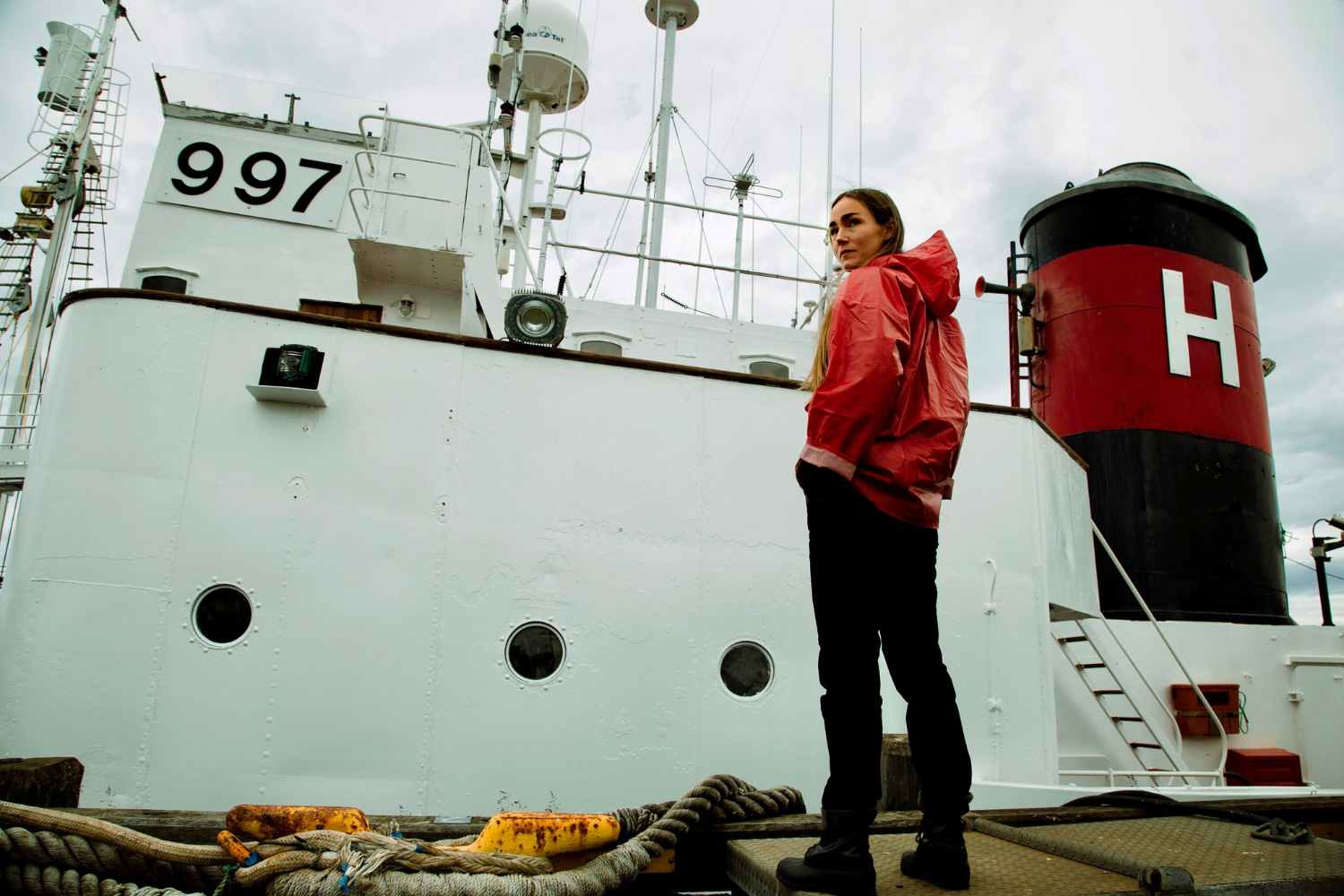If you think eating whale meat is a true Icelandic tradition, you're wrong. In reality, Iceland protects marine wildlife more than you imagine. Activist Johanna Maggý, voice of the Hvalavinir campaign, debunks this myth with facts and launches an appeal for ethical tourism

Table of contents
Iceland is a land that seems suspended between legend and reality: geysers that blow like ancestral breaths, glaciers that shine, and volcanoes that remind us of our planet’s dynamism. Not surprisingly, it’s celebrated as one of the last wild frontiers of the world. Yet behind this image, there’s a controversy that scratches the idyll: the persistence of whale hunting. A topic that concerns not only marine fauna but also the international reputation of a country that, for many, represents a natural sanctuary.
It’s in this context that the voice of Hvalavinir (“Friends of the Whales”) rises, a campaign born to defend the oceans and promote responsible tourism in Iceland. Leading it, with strength and sensitivity, is Johanna Maggý, influencer and activist.
Health coach, pilates instructor, but above all activist, Maggý has become the face of a movement calling for responsibility and awareness. But her activism doesn’t stem from a political urgency, she tells me, but from something deeper.
The real connection with the environment doesn’t come from the mind, but from the heart. It’s a primal instinct that lives within me, the need to plant a seed so that human beings can recover their relationship with the source of life.
Action speaks louder than words – Maggý explains – We live in a world where people are driven to obsessively look at their phones, ignoring what’s really happening around them. My goal is not to impose, but to empower, to offer the opportunity to break the illusion of individualism. When you belong, you find love. And when you find love, you care.
The myth of whale meat
One of the central points of the campaign is to unmask a deep-rooted misconception: the idea that eating whale meat is an Icelandic tradition.
It’s not part of Icelandic culture – Maggý tells me – It’s rather a myth built around the sea, seen as mystical and threatening. But in reality, Iceland was the first country in the world to ban whale hunting, more than 85 years ago, thanks to a national protest.
The data emerging from the Hvalavinir Campaign confirms this: over 81% of Icelanders have never eaten whale meat and less than 2% consume it regularly. Maggý herself, born and raised in the country, says she has never seen it served in her home. “Most Icelanders consider it oily, unpleasant. It doesn’t belong on our table.”
Today, hunting is carried out by a single entrepreneur, and the meat is aimed almost exclusively at tourists, Maggý says. The paradox is evident: a false ritual passed off as tradition, which survives only for profit. Much of the catch even ends up in Japan, in vending machines or transformed into dog food.
The responsibility of tourists
Tourism is therefore part of the problem, but it can also become part of the solution. The Hvalavinir campaign encourages visitors to support wildlife-friendly experiences and restaurants. “Our appeal is simple: don’t go to restaurants that serve whale meat. Every choice, every drop counts,” Maggý emphasizes.
The movement has already recorded tangible successes: some businesses have removed meat from their menus after public pressure and the distribution of a letter signed by Hvalavinir. More than 145 artists have joined, strengthening the campaign.
Maggý stresses that it’s not just about food, but about ethics.
It’s a problem of greed and egocentrism. Entrepreneurs can’t just think about immediate profit: every business choice has consequences. We’re facing global crises that require unity and responsibility.
Whale watching: the ethical alternative
For travelers who want an authentic experience, there’s only one answer: whale watching. “The companies work with scientists and environmental specialists. I’ve seen with my own eyes captains who treat whales with care and respect. And the whales approach, they have fun, they greet. It’s an encounter that stays in your heart,” Maggý confides.
The contrast is stark: on one side an industry founded on respect, on the other a practice driven by greed. “Whales are precious especially when alive – Maggý emphasizes – Their songs create harmony, they are a gift to humanity.”
The discourse on ethics doesn’t stop at the sea. Maggý also reflects on the arrival of global brands in Iceland. “Starbucks in Iceland is nonsense. We have a beautiful café culture, spaces where you work, read, converse. Their opening is just a matter of greed.”
As for McDonald’s, closed since 2009, its absence has become a symbol. “Its last meal was put in a museum. Icelanders are a healthy people, they love outdoor life. For me that food is chemical, it’s not food. It’s good that it hasn’t come back,” Maggý explains.
A love letter to Iceland
Hvalavinir is much more than a campaign: it’s a collective invitation to respect a land that belongs to the entire world. The campaign uses a respectful and encouraging tone to invite tourists to be part of the solution. “Every time I travel, I hear people say that Iceland isn’t visited because of whale hunting. This deeply damages the image of a country I love. We must protect the oceans and strengthen the laws that safeguard them,” Maggý emphasizes.
Maggý’s message to travelers is an invitation to kindness.
Explore Iceland with love. Don’t buy wildlife products, support ethical experiences. Whales are worth much more alive — for nature, for tourism, for future generations. Your trip can and must be an act of conservation.



